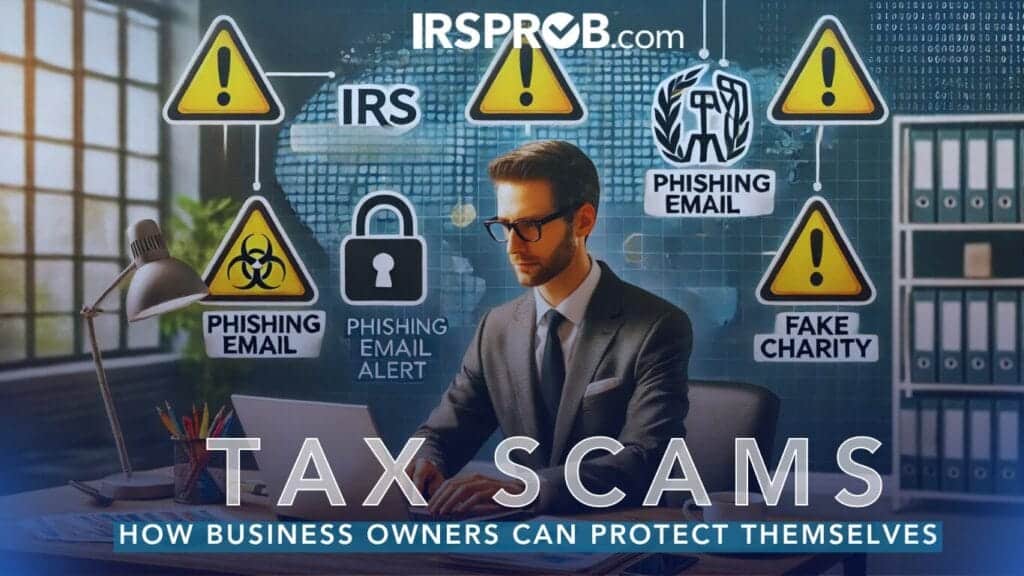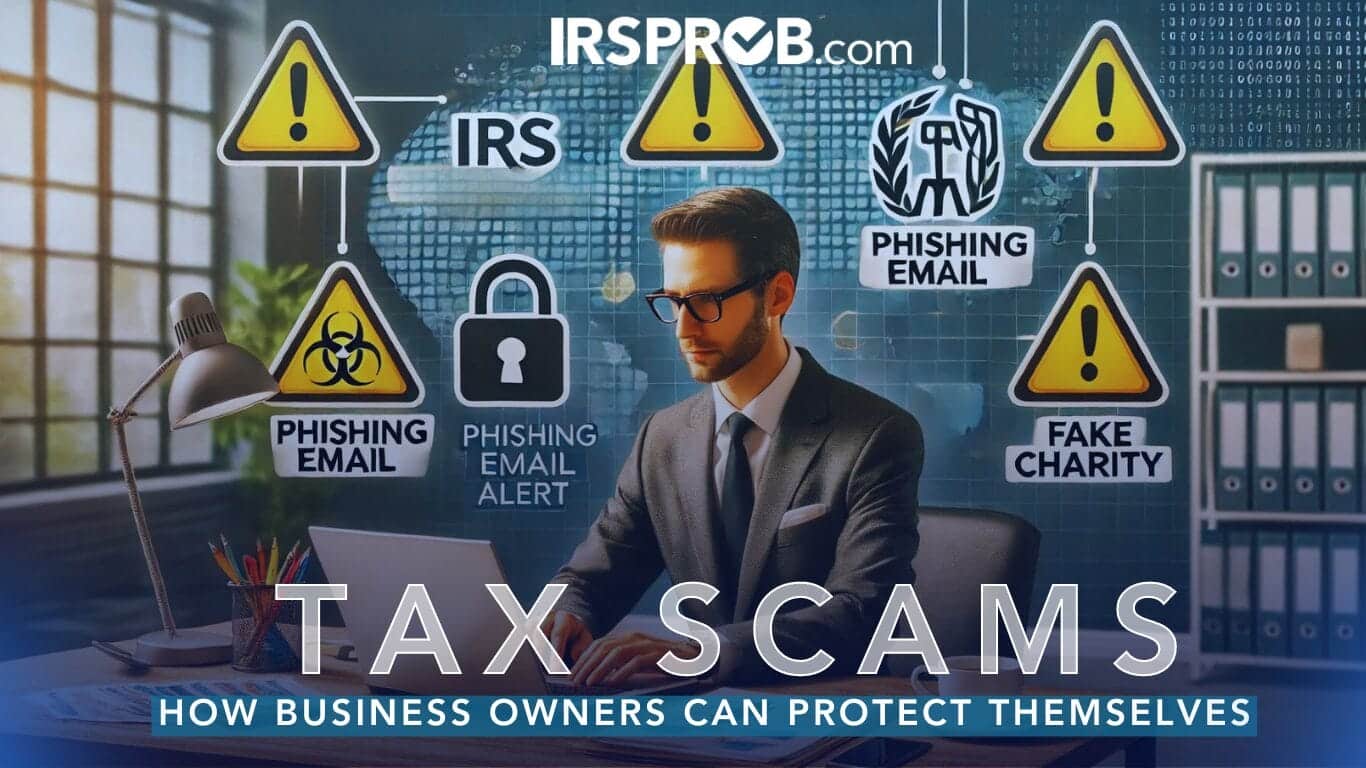
In today’s world, tax scams are becoming increasingly sophisticated, posing a significant threat to individuals and businesses alike. As a business owner, you need to stay vigilant and aware of the various tactics used by scammers who are constantly finding new ways to exploit vulnerabilities. This post will walk you through some of the most common tax scams, and offer actionable steps to protect yourself and your business.
Common Tax Scams Targeting Business Owners
- IRS Impersonation Scams
One of the most prevalent scams involves criminals posing as IRS agents. These fraudsters may contact you by phone, email, or even social media, claiming you owe back taxes or penalties. They may sound convincing, using fake IRS identification badge numbers and altering caller ID to make it appear as though the IRS is calling. They might demand immediate payment through wire transfer or pre-loaded debit cards and often use intimidation tactics like threatening to arrest or suspend your business licenses if you don’t comply.
What to do:
Remember, the IRS will never demand immediate payment or request financial information via phone or email. If you receive such a call, hang up immediately. If you’re unsure about whether you owe taxes, contact the IRS directly at 1-800-829-1040. - Phishing and Text Message Scams
Another common scam is phishing, where criminals send fraudulent emails designed to look like official IRS communications. These emails may ask for sensitive information such as your Social Security number or bank account details. Similar tactics are used in text message scams, which may include links to fake IRS websites.
What to do:
Do not click on any links or provide any information. Forward any suspicious emails to the IRS at phishing@irs.gov, and report text scams by sending a screenshot to the same address. Keep in mind that the IRS will never initiate contact with you through email or text. - Fake Charities
Fake charities often prey on the goodwill of business owners, particularly during times of crisis or heightened charitable activity. These scammers masquerade as legitimate organizations, soliciting donations that they pocket instead of directing to actual causes.
What to do:
Always verify the legitimacy of a charity before making a donation. The IRS provides a tool called the Tax Exempt Organization Search on its website, which allows you to check the status of any charitable organization. - Offer in Compromise (OIC) Mills
Some scammers target business owners facing large tax liabilities by offering to settle their tax debts for “pennies on the dollar” through a process called an Offer in Compromise (OIC). These scams charge excessive fees for services you can obtain directly from the IRS for free or at a minimal cost.
What to do:
Be wary of anyone offering to negotiate with the IRS on your behalf for large sums of money. If you believe you’re eligible for an OIC, contact the IRS directly or consult a tax professional.
How to Protect Your Business from Tax Scams
- Secure Your Personal Information: Never give out personal or financial information unless you’re certain of who you’re dealing with. If you’re contacted by someone claiming to be from the IRS, verify their identity before engaging.
- Safeguard Your Social Security Number: Don’t carry documents that contain your Social Security Number (SSN) or Individual Taxpayer Identification Number (ITIN) unless necessary, and provide these numbers only when legally required.
- Monitor Your Financial Activity: Regularly check your credit reports and Social Security earnings statements. Review your business’s financial accounts for any unusual or unauthorized activity.
- Enhance Cybersecurity: Protect your business’s computers with firewalls, antivirus software, and regular updates to security patches. Encourage employees to use strong, unique passwords and update them frequently.
- Stay Informed: Keep yourself up to date on the latest tax scams. The IRS regularly updates its list of known scams on its website, including the “Dirty Dozen” scams which are updated annually.
Final Thoughts
As tax scams continue to evolve, business owners must stay informed and vigilant. By knowing the signs of common scams and taking steps to protect your information, you can prevent fraudsters from causing harm to your business.
If you’re ever in doubt about the legitimacy of an IRS communication, it’s always best to consult a tax professional or contact the IRS directly. Proactively securing your financial information and staying aware of current scams can make all the difference in safeguarding your business from tax fraud.








